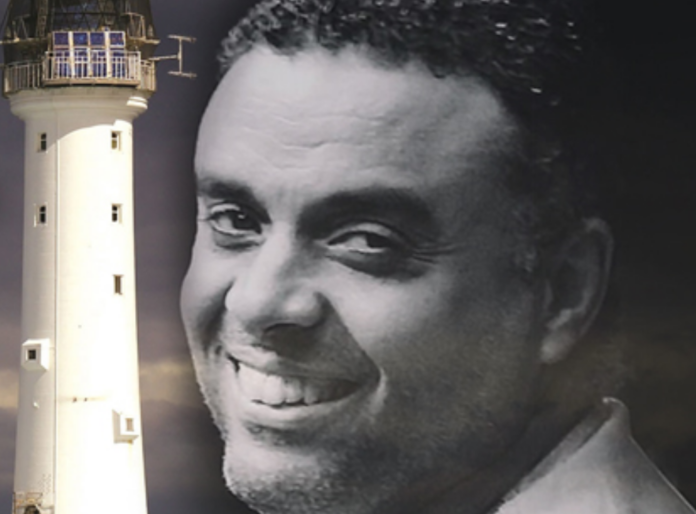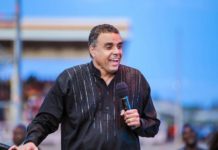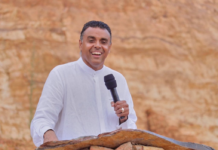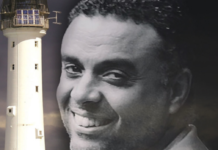
In Part 1 of the “Darkness in a Lighthouse” series, The Fourth Estate examined the alleged failure of Lighthouse Chapel International (United Denominations Originating from the Lighthouse Group of Churches (UD-OLGC) in the payment of SSNIT for six of its pastors who have resigned and are now in court.
In Part 2 of the series, the pastors speak of exploitation by the church, which started in the form of a policy; undue pressure to raise funds, which turned them into beggars; and psychological effects of their ordeals, which drove one of them to attempt suicide three times and also cut his scrotum.
In the concluding part of this series, The Fourth Estate focuses on the stress which the alleged maltreatment imposed on the pastors’ marriages and the account of one bishop who says he was under pressure from Bishop Dag Heward-Mills to divorce his wife. The pressure to divorce his wife and its attendant “psychological and emotional trauma” is part of the reasons this bishop has sued Lighthouse Chapel International.
—————————————————-
“My wife rejected my birthday gift”
On January 3, 2017, Bishop Emmanuel Oko Mensah went home from work bearing a gift—a dress, jewelry and cash of $100. It was the birthday of his wife with whom he had spent the past years of his life as a pastor of the Lighthouse Chapel International.
Their wedding was officiated by Bishop E.A.T Sackey on December 3, 2005, four years after he completed the Kwame Nkrumah University of Science and Technology (KNUST) with a degree in Civil Engineering.
Like many young and bright professionals such as medical doctors, lawyers, accountants and scientists, Oko Mensah decided to go into full-time ministry with the church. It was at the Lighthouse Chapel that he met his wife, Emmanuella, in 2003 and they got married two years later.

Her birthday in 2017 came a month after their 12th wedding anniversary, but their marriage was not what the two of them wanted it to be. Nevertheless, birthdays are special, and he wanted to express his love in the form of a gift.
But Mrs. Emmanuella Mensah rejected the gift. The rejection had nothing to do with the inadequacy or quality of the gift. The circumstances surrounding the marriage needed more than a gift. Mrs. Mensah said she could not accept a birthday gift from a husband who had been treating her badly.
Looking back at that night, Bishop Oko Mensah agrees with the wife. He admits he had not been a good husband and much of it had to do with years of pressure and comments from his spiritual fathers which made her see the woman as the devil.
On that night, however, his wife’s action infuriated him. And the phrase that kept ringing in his mind as he stormed out of the house for validation was, “They said it!”
His wife’s action only confirmed what he had been told, and with righteous indignation, he said he called the founder and Presiding Bishop of the Church, Bishop Dag Heward-Mills, to complain. Bishop Heward-Mills asked him to come to the church premises for a meeting, and what transpired there, to him, would justify the outrage with which he stormed out of the house.
The discussion that night reinforced the negative things he had been told about his wife, a woman who had endured so much from an absentee husband due to this hectic work schedule.
Bishop Oko Mensah’s wife was not the only woman who had to carry the cross of denial and deprivation resulting from the husband’s work schedule or transfers.
Ministry and marital stress: “I will never come back again.”
When Lighthouse Chapel International posted Pastor Faith Makafui Fiakojo to Fumbisi in the Upper East Region to start a church, he took a bold and enthusiastic step steeped in faith. But that faith, he would soon realise, was dead faith because it was not accompanied by works. It was the kind of faith discounted in James 2:15-16 of the Bible:
“Suppose a brother or a sister is without clothes and daily food. If one of you says to them, ‘Go in peace; keep warm and well fed,’ but does nothing about their physical needs, what good is it?”

Pastor Faith Fiakojo says the church did not give him resources to go and start the church apart from the training he had received at the church’s bible training school and the goodwill of the church, a name that did not ring a loud bell of recognition in that rural and poverty-stricken part of Ghana. Buoyed by an overdose of youthful exuberance and assured that he could do all things through Christ who strengthened him, he left his job and family and headed for the north.
In what he now describes as neglect by the church in his interview with The Fourth Estate, he says he was not provided accommodation and was told to organise a revival to raise money to pay his rent in Fumbisi.
He says he was compelled to initially share a single room with a woman and her child and endured the inconvenience that came with it. Three months later, he says a church member offered him a place. Tasked with building a church from scratch, he said he mined rocks in bushes and lived on a GHc300 salary which was not paid consistently.
When his wife, a nurse, visited him and witnessed his sordid plight, she muffled her complaints during her stay and silently endured with him. There was no toilet facility where they lived, so when nature called, he had to lead her into a nearby bush to empty her bowels.
On the day of her departure back to Accra, however, she could not hold it. According to Pastor Fiakojo, his wife vowed never to step foot there again if this was how his church would treat him. And she stuck to her vow.
He says he built the church but was later suspended because of a disagreement with a senior bishop of the church. His replacement finally resulted in his leaving the church. And that saved his marriage the stress it had endured when he decided to serve as a pastor of Lighthouse.
For Bishop Emmanuel Oko Mensah, several factors put a devastating strain on his marriage. One of such strains, he notes in a writ filed at an Accra High Court against the church, was the incessant transfers. But even in Accra, his work schedule made him a full-time pastor and a part-time husband.
Bishop Oko Mensah was a pastor for the first service at the Qodesh. He says Lighthouse has a system calledMaximised Sunday usage. Pastors and some church workers leave home early on Sunday morning and returned home very late. Sometimes, he left home for the church at dawn and got home at midnight.
“And if you have problems with this and complain, you will be called names such as Absalom or Orangutan or they will say you’re not spiritual enough,” he laments.
Apart from his main pastoral duties, he was in charge of organising the church’s breakfast meetings. He was also in charge of maintenance of the equipment and sound systems in all the 11 church halls at the Qodesh, the headquarters of Lighthouse in Accra.
He was also in charge of weddings and part of his responsibility was to ensure that there were enough musicians—drummers, singers, and other instrumentalists—at all the weddings.
“Sometimes I played the organ at weddings when we didn’t have enough keyboardists,” he recalls.
But that was not all. Bishop Oko Mensah also hosted four programmes on Sweet Melodies, an Accra-based radio station operated by Lighthouse Chapel.
On weekdays, his day started at 3:30 a.m. when he would have to be up and be in the studio by 4.00 a.m. to begin the morning worship programme, Sweet Melodies Quiet Time. That programme lasted till 6 a.m., after which he would rush home and take the children to school before going to work.
From 5:10 p.m. to 5:40 p.m on weekdays, Bishop Oko Mensah was in the studio hosting Prosper and Alhassan, a comic, interactive programme that involved two characters, Prosper and Alhassan. The two characters spoke two different accents. Prosper spoke with an Ewe accent and Alhassan spoke with a northern Ghana accent. But he played both of them.
In the night, 11:15 p.m. till dawn, he hosted a prayer programme called Breaking the Chains. After the programme, he would answer calls and address some pressing needs of some listeners and church members and often went to bed for a quick nap before his dawn programme.
RELATED:
Kennedy Agyapong turns guns on Bishop Dag Heward-Mills [Video]
On Saturday mornings, he hosted Prayer Clinic from 6:am to 8 am at the Qodesh before heading to the studio to host Melody Sports from 10 a.m. to 11 a.m.

Besides these chaotic work schedules which took a toll on the marriage, Bishop Oko Mensah said his superiors in the ministry made him feel that his wife, who sometimes complained about the toll of his work on the marriage, was evil. He was made to understand that the woman was working against his ministry, and with time, he began to believe it and it showed in how he treated her.
So, when she rejected the birthday gift, he felt some of the things she had heard about her were manifesting and he went to meet Bishop Dag Heward-Mills about it.
‘I resigned because Dag Heward Mills asked me to divorce my wife’

In his writ filed at the Accra High Court, Bishop Oko Mensah accused Presiding Bishop Dag Heward-Mills of pressuring him to divorce his wife. According to him, he was “unduly pressured by the Founder of the Defendant church to divorce his wife because she was perceived to be a stumbling block” to his [Bishop Oko Mensah’s] ministry.
This pressure resulted in “psychological and emotional trauma”, according to Bishop Oko Mensah’s court documents sighted by The Fourth Estate.
When his wife rejected the birthday gift and he went to meet Dag Heward-Mills at the church premises, Oko Mensah says the presiding bishop asked him to divorce her. He, however, says that Dag Heward-Mills’ posture towards his marriage was formed even before their wedding day.
Bishop Oko Mensah tells The Fourth Estate that the presiding bishop had expressed reservations about his marriage to Emmanuella. (The nature of these reservations is very sensitive and disturbing so we’ve exercised the discretion not to publish them).
Some years into the marriage, holes in the holy matrimony emerged, “like any other marriage”, Oko Mensah said.
When issues in the marriage occurred, the spiritual son ran to one man -–his spiritual father. And it wasn’t strange. Many of the young people who became pastors saw Bishop Dag Heward-Mills as a father and he wielded more influence on them than their biological fathers.
“If my biological father asked me to do A and Dag-Heward Mills asked me to do B, I would do B,” a former missionary who served Lighthouse both home and abroad and wants to remain anonymous, told The Fourth Estate.
He (the former pastor who wants to remain anonymous) says he graduated with a degree in Medical Physics from the Kwame Nkrumah University of Science and Technology on 25th May 2004, and on 26th May 2004, he entered full-time ministry. He said he had been working in the church after secondary school so he joined straight away.
The woman he married was also in full-time ministry. She holds a BA in Psychology as well as a Masters’ degree in International Business Law and an LLB from the Ghana Institute of Management and Public Administration (GIMPA).
He says his wife was also a full-time minister so, in his second missionary assignment abroad, they went together. But the policy was that the church would take care of him alone until their mission was able to succeed and generate income to help his wife.
With time, his wife began to complain about the hardship and he sent an email to Bishop Dag Heward-Mills and told him about his wife’s attitude. According to him, the presiding Bishop asked him to divorce her if she was a stumbling block to the ministry.
He did not divorce her, but when they returned to Ghana from the mission in 2009, the church sacked his wife.
He was also sacked in 2011 over financial issues.
At age 45, the former minister of the gospel who says he was one of the pioneers of the Healing Jesus Crusade, says life after Lighthouse is tough. Those who are sacked for various reasons, including the failure of their missions find it difficult to get jobs.
“I have applied and attended many job interviews, but when it comes to work experience, everything on my CV is about my work in Lighthouse. After school, we spent all our lives here.”
The 45-year-old father of two, and a graduate of Medical Physics, says he drives an Uber to take care of the family. His wife is currently battling a terminal illness, a reason he does not want to disclose their identity because “she is already going through a lot.”
Bishop Oko Mensah says, on several occasions, when he complained about his marriage to some senior officials of the church and Dag Heward-Mills, the advice would include “sack her from the house.”
He recounts an embarrassing situation he faced at a staff meeting held in Mampong in the Eastern Region and attended by university students who are members of the church as well as other pastors and bishops. It was there that Bishop Oko Mensah says the harassment and abuse went a notch higher.
“He [Dag Heward-Mills] turned to me angrily and shouted, ‘You, you are weak. You are weak. Even the woman you have gone to marry, one day, when you leave her, she will come crying to Bishop Sackey.’’

Shellshocked and embarrassed, Oko Mensah says the reaction of the audience “was like an offside trap—everybody pulls away from [you] because the leader is angry.”
He says there were many witnesses to this incident, including a work colleague, who in a fit of over-zealous loyalty blurted out in support of the Bishop, “I told him not to marry her!”
Explaining the reason for the pressure from his senior ministers to put his marriage asunder, Oko Mensah says it was partly because he wouldn’t budge at the suggestion that his wife should resign from her work at SSNIT and join him in full-time ministry.
“In 2018, when I was in Ouagadougou [Burkina Faso], I was called to come and move my family from the church premises. I moved my family and went to have a meeting with Dag before going back. Then he said, ‘Has your wife joined you?’ I said no. He said, ‘She is fighting your ministry; divorce her.’’’
He says this meeting was held on September 28, 2018, at Bishop Dag Heward-Mills’ private office called Jordan. According to him remembers this date because even before he went home to share details of the “wild meeting” with his wife, he hinted her about it on WhatsApp.

Bishop Oko Mensah explains that his income alone could not support his family on the mission field. His wife, a mother of two, was a pillar in keeping the home together as she was gainfully employed at SSNIT, he said.
If she joined him in full-time ministry, Bishop Oko Mensah says, “I wouldn’t be able to pay school fees. Income would be shut down.’’
Bishop Dag Heward-Mills’ public and private show of disapproval of Oko Mensah’s marriage punctuated several of their interactions. “Every time he sees me, he would be making funny comments about my wife.”
In another incident, Bishop Oko Mensah recounts he walked up to Dag Heward-Mills at the Qodesh car park. In the company of some other ministers of the gospel, the presiding bishop mocked:
“Oko Mensah, you followed buttocks, you followed breast. I hope you are getting it to touch.”
The sneer rippled across the subservient company of his ministers. “They were all laughing,” he recalled with pain.
He admits that this sustained abuse on the part of senior ministers of the church and the founder affected his marriage and his relationship with his wife deteriorated even further.
Bishop Oko Mensah said the founder told him once again on September 28, 2018, to divorce his wife. In this instance, Bishop Dag Heward-Mills had a theological justification that Oko Mensah says was warped.
“After all, Jesus said on the basis of adultery you can divorce your wife,” Oko Mensah recalls Dag Heward-Mills’ sermonette to a hurting husband. “Jesus said if you look at a woman lustfully you have committed adultery already. Oko, have you looked at a woman lustfully before?”
“I said yes,” the bishop confessed as Dag Heward-Mills readied himself for his verdict.
“Oko, you have committed adultery already. You qualify to divorce your wife. Divorce her; I will officiate another wedding for you,” Oko Mensah recounts the verdict his spiritual father.
Bishop Oko Mensah said after this “instruction”, Dag Heward-Mills “prayed for me to have the strength to carry it out.” He said he did not carry it out and it upset some senior ministers in the church.
The Fourth Estate brought these allegations to the attention of the church and requested a response. That request letter was dated March 17, 2021, and submitted to the church on that same date. The church has not responded, but our sources close to the management of the church said a reply to the request was unlikely.

After enduring more than a decade of alleged abuse, shame, and harassment from his church over his marriage, Bishop Oko Mensah said he chose God over Dag and Emmanuella over Lighthouse.
“I resigned from Lighthouse because the leader, Dag Heward-Mills, told me to divorce my wife.”
Oko Mensah will celebrate 15 years of marriage this December. His gifts to his wife on this anniversary will no doubt be accepted, he laughs.
It comes off as the laughter of a man in a healed marriage even if he, now at age 44, would have to pick up the pieces of his life together.
Since resigning from Lighthouse Chapel International, he feels at peace that, at least his marriage, is still in one piece.

And his burden is lighter than it was when he served in Lighthouse, a lighthouse with some pitch darkness that could not be cast out because doing so would amount to disloyalty to the leader.
ENDS

![The Bible supports divorce and polygamy – Bishop Dag Heward-Mills [Video]](https://www.adomonline.com/wp-content/uploads/2023/08/image_2023-08-11_115912396-218x150.png)



